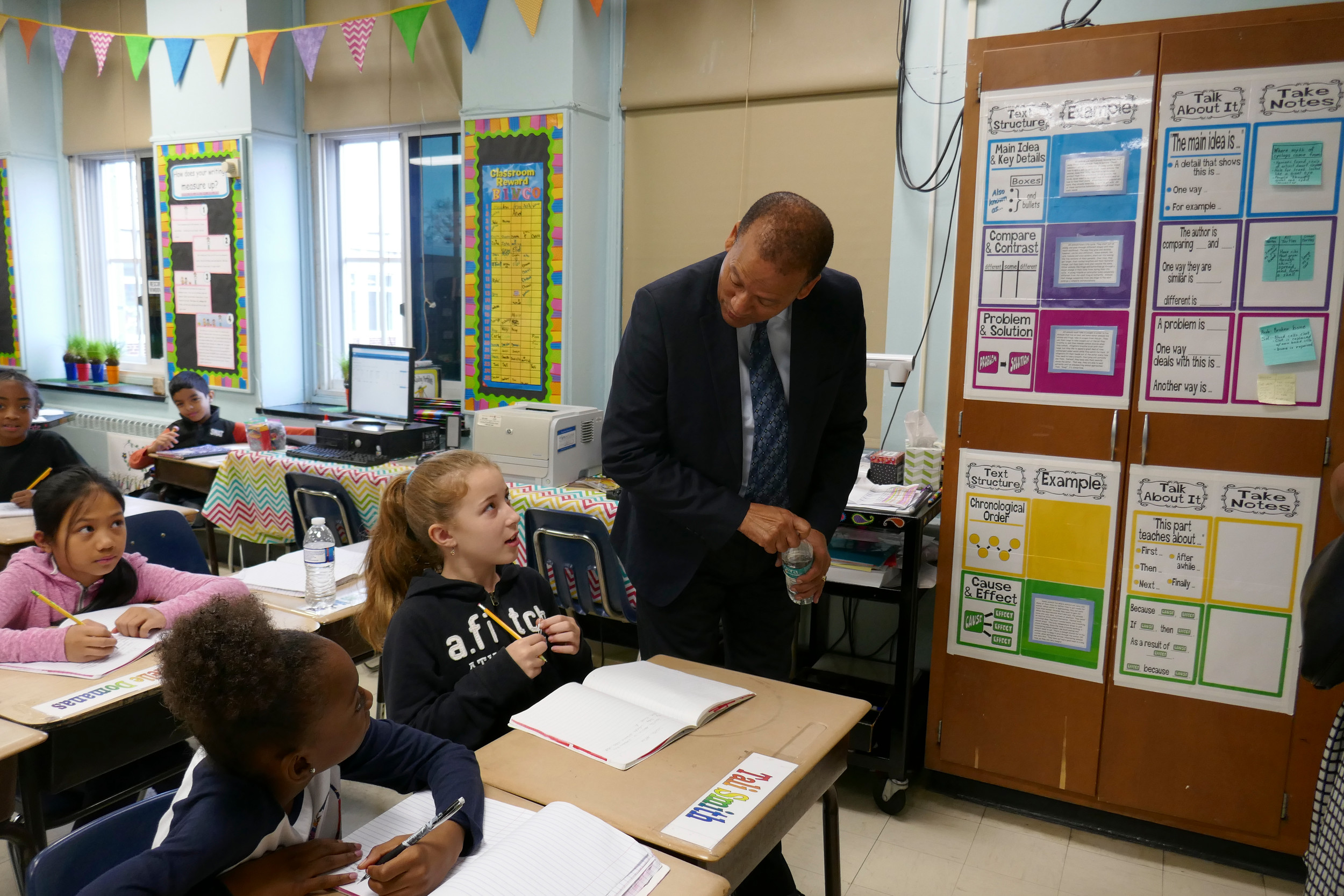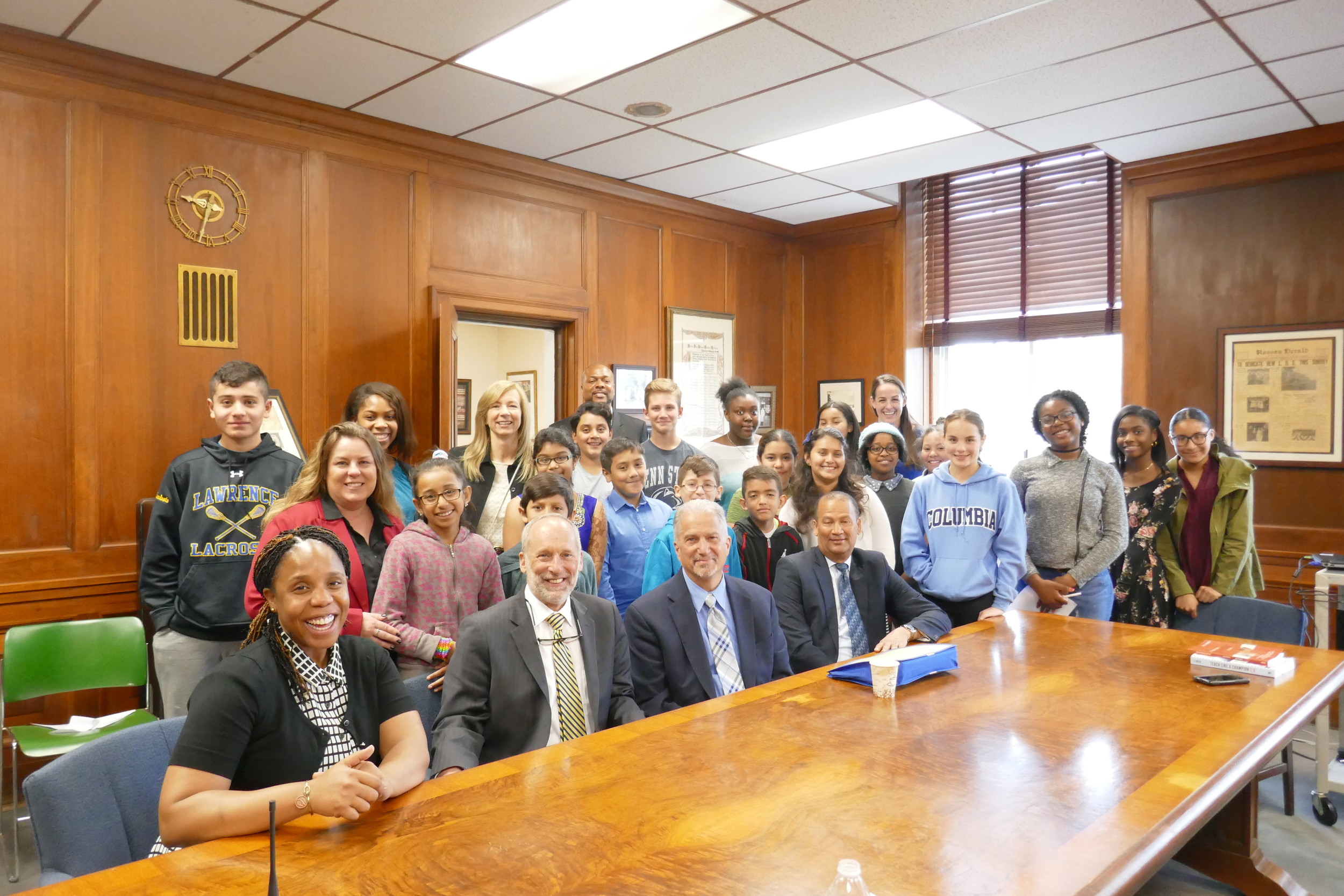Bridging the cultural divide
Diversity is part of learning at Lawrence schools
Lawrence School District students could have one distinct advantage compared with their peers in other districts: They are more likely to understand and communicate with people from different ethnic backgrounds.
Long Island is one of the most racially segregated regions in the United States, according to data provided by a 2015 study by ERASE (Education, Research, Advocacy & Support to Eliminate) Racism NY, a Syosset-based nonprofit group that documents racial inequities on Long Island in public school education and housing.
Lawrence schools are 43 percent Hispanic, 26 percent white, 23 percent black and 6 percent Asian, according to figures from the State Education Department. In comparison, the neighboring Lynbrook School District is 80 percent white, 13 percent Hispanic, 4 percent Asian and 3 percent black. All percentages are from the 2012-13 school year, the most recent compilation. No data was available for Hewlett-Woodmere schools.
“Everyone here is different, and we all come together,” said Jose Barrientos, a Lawrence Elementary School fifth-grader. “How we look doesn’t mean how we are. Even though we are different, we can still be friends.”
Jose and his classmates Jael Orozco, Keylin Ramos and Demien Scuna created a public service announcement for human rights as part of their bilingual class with teacher Gilynn Cromartie.
That PSA and other presentations were part of a special day on April 25, when Arnold Dodge, an assistant professor of education and the chairman of the Educational Leadership and Administration Department at LIU Post, and Dr. Berte Van Wyk, the director of educational policy at Stellenbach University in Capetown, South Africa, visited. District dance coordinator Laila Sales attended a program at LIU Post that Dodge runs, called “Cultural Divide, Courageous Conversations” that focuses on race and education. And Lawrence Superintendent Gary Schall was part of a field team that observed 10 Capetown schools in February as part of Dodge’s symposium.
“The goal is to get people to have a conversation on current racial issues,” Schall said of Dodge’s program. “What ended up happening on their visit to us was 35 student government students met or had a conference with Dr. Van Wyke, and it was an eye-opener for the kids.”
“I learned, not many people get what we get,” Keylin said, of the schools in Capetown. “People get treated badly.”
“[Dr. van Wyk] emphasized that kids are kids and no matter where they are, they act the same,” said eighth-grader Luke, president of Lawrence Middle School’s student government. “I try to apply that in school or outside. You’re this, I’m that, but we are all people.”
Corrinthea Washington, the school’s vice president, stressed that a small gesture, like wearing T-shirts, “made us all kind of feel united,” and that included the students in the Life Skills program. “We are all equal, not separate,” she said. “The cultural diversity here is amazing.”
Along with race, gender is a focus of Lawrence’s diversity through the Girls’ Leadership program which aims to empower and boost the self-esteem of young women who could be considered at-risk youths.
Monet Williams has been a part of the program for more than three years. “I haven’t gotten into trouble, and I’m making better decisions,” the eighth-grader said, adding that she used to be a follower. “The school’s diversity helps me better understand other people.”
The leadership program has also had a positive impact on seventh-grader Ileana Dagrin, a member for two years. “I don’t like racist jokes,” she said, “and I understand people’s reactions to them.”
Another component of the district’s cultural diversity is its partnership with the Hebrew Academy of the Five Towns and Rockaway Middle School in the Names Not Numbers program, in which Lawrence and HAFTR eighth-graders interview Holocaust survivors. The discussions are taped for posterity.
“This was a once-in-a-lifetime experience,” Mathew Guevara said of learning about a person who hid from the Nazis. “You get to know their story,” Natalie Bran said. “You learn to be kind to people and what they went through.”
The high school students appreciate the diversity: Garciella Cruz and Jessica Mastorides are in the Hebrew Culture Club. Fellow senior Vishal Boodoo appreciates the range of experiences at Lawrence compared with his former school in Massachusetts. Classmate Mavet Arellano said she believes the school district is a “perfect fit” for her.
All four said that they based their college choices on a school’s diversity. “Understanding different cultures could make it better for me in the workforce,” Cruz said, “understanding what to say and knowing how to help out.”

 72.0°,
Partly Cloudy
72.0°,
Partly Cloudy 







